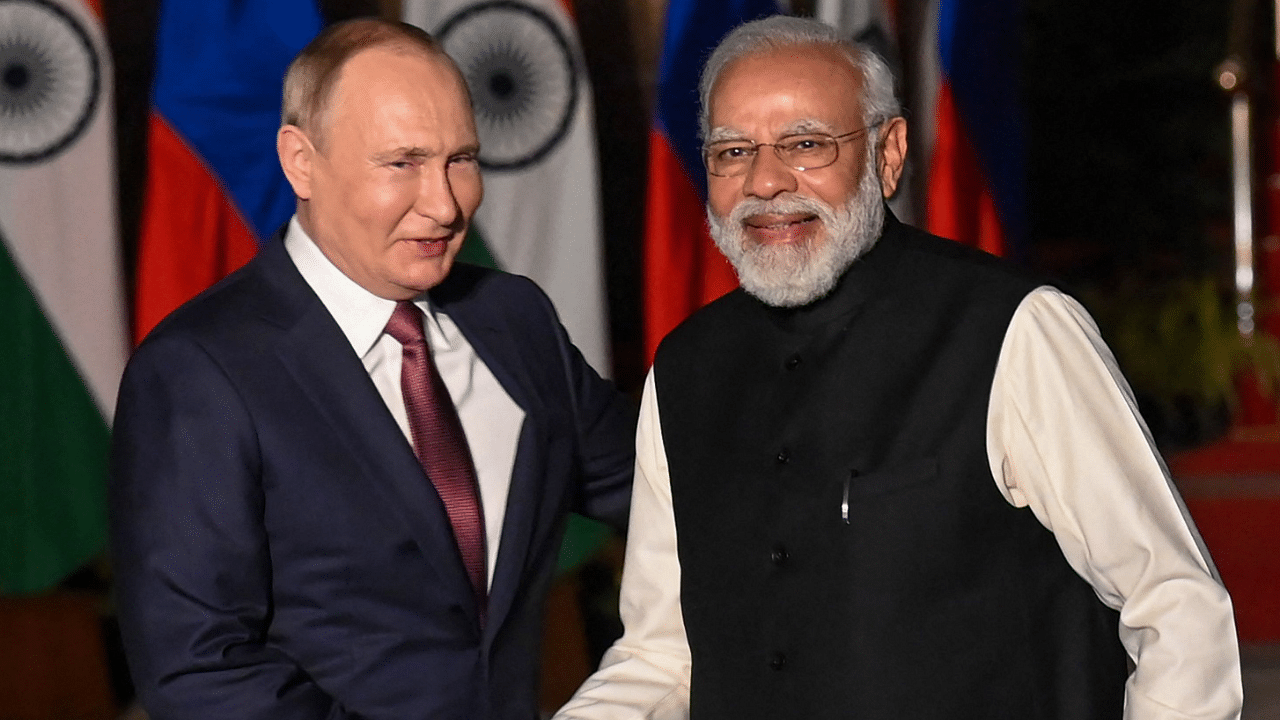
By Pankaj Mishra
“Democracies are rising to the moment,” US President Joe Biden said in his State of the Union address, as Russian President Vladimir Putin unleashed his vicious war on Ukraine. Francis Fukuyama leads a band of commentators claiming that the “spirit of 1989” is back and we are about to witness globally a “new birth of freedom.”
Such rhetoric, usually intoned by men who lived through the heady last days of the cold war, is dangerous. It could yet again make Western countries misread the world and their own power to shape it.
Today’s geopolitical realities are even messier than they were during the cold war, blurring any neat moral opposition between democracy and autocracy. Turning to Venezuela and possibly even Iran to alleviate pressure on oil prices, the United States is already hollowing out its “alliance of democracies.” China, a reliable anti-Soviet partner in the 1970s, seems to have concluded that a close association with the West is neither desirable nor viable. It is presently amplifying Russian propaganda and censoring anti-Putin voices.
More importantly, a large group of nations look ready to sit out the new cold war between a hastily reunited West and Russia.
Brazilian President Jair Bolsonaro says that his nation “will not take sides.” South Africa was only the biggest among 17 African countries to abstain from a United Nations resolution condemning the Russian invasion of Ukraine. Argentina, Turkey, Mexico and Indonesia belong to the great majority of nations that have declined to sanction Russia.
The most revealing of these fence-sitters is India, technically at least the world’s largest democracy. Long-standing ties with Moscow — Russia meets about half of India's needs for military hardware — only partly explain India’s refusal to stand with its US, Australian and Japanese partners in the so-called Quad.
Like many governments around the world, which were already fighting politically treacherous inflation, Prime Minister Narendra Modi’s administration worries about the rising price of Russia's key exports — oil, wheat and fertilizers. And Modi surely appreciates Russia’s consistent support for India’s stripping of Kashmir’s constitutionally guaranteed autonomy.
For all these reasons and more, India won’t depart from its fundamental geopolitical strategy of non-alignment — playing off one power against another, while securing material and diplomatic commitments from both sides.
The cold warriors who insist on being “with us or against us” have never really appreciated the transactional and shifting relationships at the heart of non-alignment. Nor do they seek to understand how carefully and warily the world’s most populous nations weigh their cooperation with a West-dominated international order.
Indonesians still remember the 1998 financial collapse in Southeast Asia, popularly blamed on Western investors. Chinese nationalists continue to invoke the 1999 bombing by NATO of China’s embassy in Belgrade. Memories in Asia and Africa of the 2003 invasion of Iraq and the calamitous Western intervention in Libya remain raw.
For many Asians, Latin Americans and Africans, Putin does not seem an unprecedented violator of international law. His anti-Western rhetoric even falls on receptive ears — witness, for instance, his personal popularity in countries such as India and Indonesia.
In any case, distrust of aggressive regional powers such as Russia, China, Turkey and Iran is balanced by suspicions that the US is a profoundly weakened and highly unstable superpower. These misgivings were amply confirmed during Donald Trump’s presidency and are hardly dispelled by the continuing influence of Trump, and Trumpism, in US politics.
The self-interested European and American response to the global pandemic helped build even more resentment against the West. This is bound to increase with such reckless acts as the cancellation by Lithuania of a shipment of Covid-19 vaccines to Bangladesh because of the latter’s refusal to condemn Russia at the UN.
Certainly, as the US freezes dollar reserves of the Russian central bank, and iconic consumer companies such as Apple Inc., American Express Co. and McDonald’s Corp. abruptly disengage from Russia, nations around the world are reconsidering their own dependence on Western goods, technologies, finance and payment systems.
China, outraged by Trump's strangling of Huawei Technologies Co. and the threatened expulsion of Chinese companies from Wall Street, has long been pursuing autonomy in the all-important realms of finance and technology, and trying to find ways to challenge the global dominance of the dollar. Other national efforts towards economic resilience and diversification of supply chains, from Covid vaccines to semiconductors, will also accelerate.
As the landscape of globalization fragments, the prospects for democracy will diminish faster, notwithstanding the rhetoric about the new birth of freedom. Autocracies around the world were already building high digital fortresses to keep out dissent. The withdrawal of services by Silicon Valley’s media companies will only help them maintain their monopoly on disinformation.
No matter what happens in Ukraine, then, the following trends are only set to intensify: opportunistic non-alignment, de-democratization, de-dollarization of the international financial system and general de-Americanization of the globe.
The cold war ended in 1989 with too many fantasies about the free world’s moral prestige and geopolitical capacity. A second cold war that begins with more such delusions is heading for a destructive stalemate, if not clear defeat.
Check out DH's latest videos